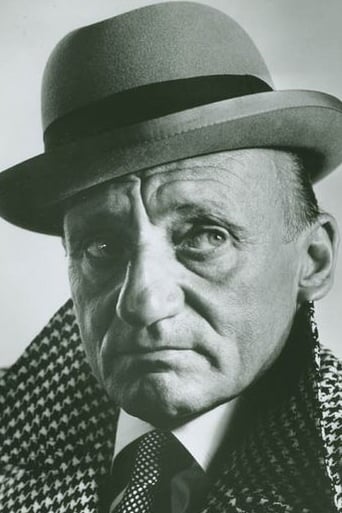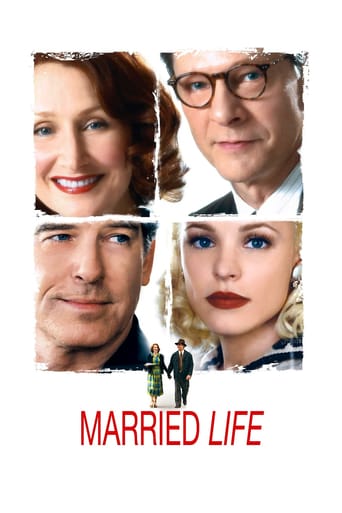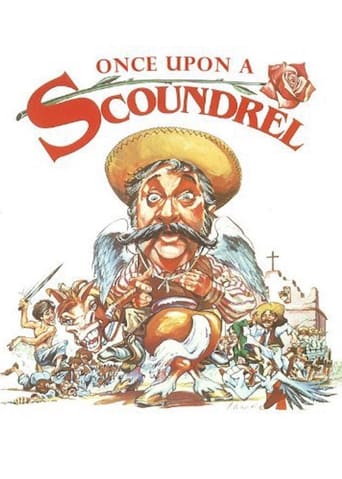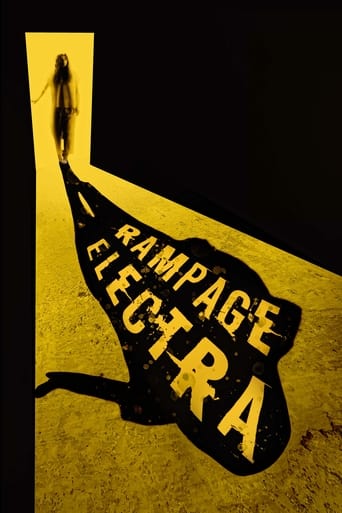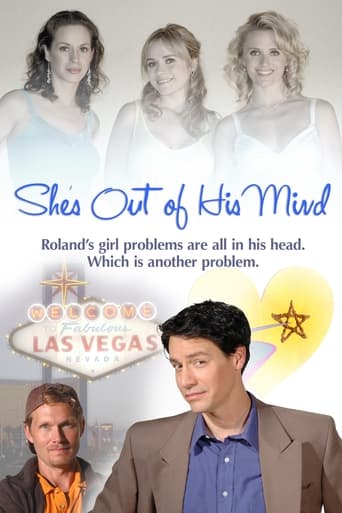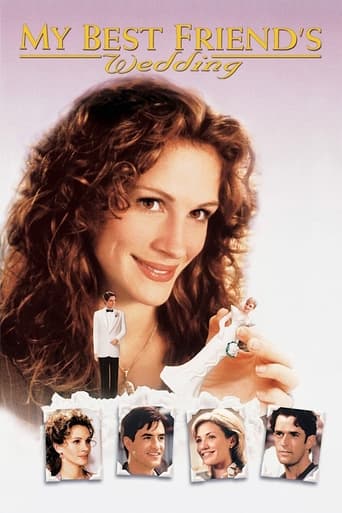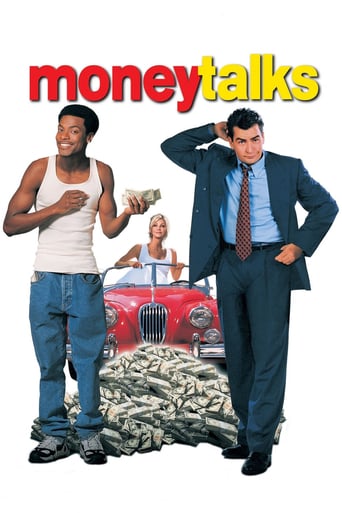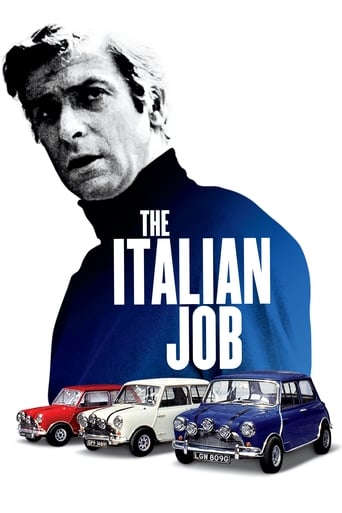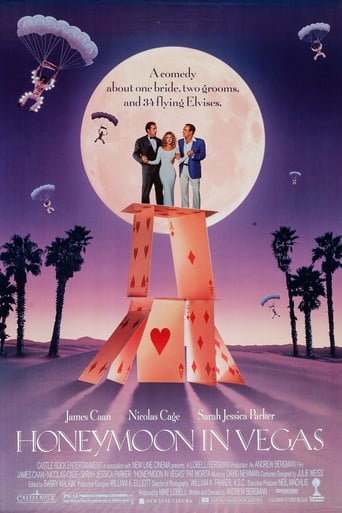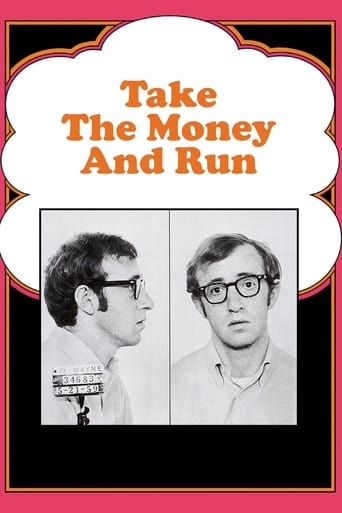
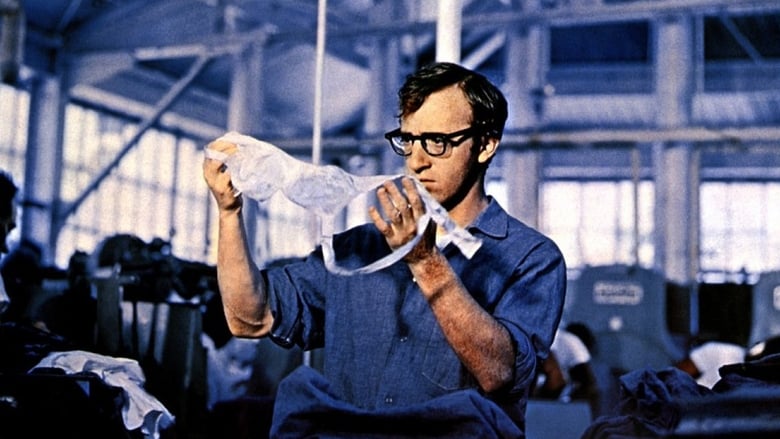
Take the Money and Run (1969)
Virgil Starkwell is intent on becoming a notorious bank robber. Unfortunately for Virgil and his not-so-budding career, he is completely incompetent.
Watch Trailer
Cast
Similar titles
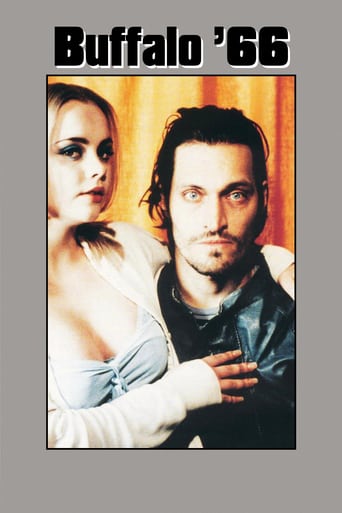

Reviews
Excellent, smart action film.
A great movie, one of the best of this year. There was a bit of confusion at one point in the plot, but nothing serious.
By the time the dramatic fireworks start popping off, each one feels earned.
Great story, amazing characters, superb action, enthralling cinematography. Yes, this is something I am glad I spent money on.
The first triple attempt for Woody Allen in Movies as Writer, directer and leading actor in his own mis-adventures about a clumsy, misguided two bit nebish of a crook Virgil Starkwell. This mockumentary focuses on the turbulent times of bank robber Virgil Starkwell.The deep rich vocals of Jackson Beck are provided during this entire movie as they are narrated in a solemn, stern plausible style. Conversely the comical in-depth interview by old friends. convicts and his parents complete with Groucho Marx masks as to not reveal their identities to the viewers.Virgil's diligent planning for the perfect bank holdup including a egotistical Euopean Director. But alas his poor wife played by Janet Margolin is not appreciated as Virgil whines, "I can't wear a beige shirt to a bank robbery!" Bumbling bank holdups and failed robbery attempts are the norm for this comedy. These hilarious scenes are shown despite the serious narration. Favorite moment is when the Starkwell's Virgil and his wife are doing math homework with their son, during a heated car chase from the law. Bullets are flying toward the Starkwell's car as Virgil fires back with pistil in hand,but sonny boy needs to get the math homework completed. In a cops and robbers style car chase multitasking is the normal for our blundering bespectacled rogue. Plenty of hilarious scenes throughout this early work of Woody Allen where crime in this case does PAY!
Take the Money and Run was one of the first mockumentaries to be widely released. Again and again we go back to the parents' talking heads and their Groucho Marx masks, because they are so ashamed of their son's crimes that they dare not show their faces. This is, like Ebert notes, mildly funny the first time and less so with each revisit as they continually bicker and fight (one notable exception is when the narrator interrupts them himself and orders them to get to the point - a sure jab at the tendency for many of these talking heads to waffle on and on). Another aspect of the mockumentary is the brooding voice- over narration that is full of self-seriousness and self-importance. It presents Virgil as an infamous outlaw, not quite Bonnie and Clyde, but nevertheless iconic enough to have a documentary made about his life and crimes. Throughout the film, we keep expecting that the story will build to some monumental, historical point, some crazed crime of infamy, but it doesn't. The story is like his life; a deflated, missed punchline. Most stories have the protagonists wavering from their morality and considering breaking bad and descending into a life of crime, if only to survive. Virgil is not like most protagonists. He does the opposite - so many times he is nearly tempted to go straight, to give up crime and find a nice, honest job. Suffice to say he fails at that too. A lot of the film's comedy is drawn from Allen's stand- up tendencies. So as the jokes come thick and fast we have less interesting visuals on the screen. That is not to say that they are not funny. One of his bank robberies fails because his handwriting is too messy and the characters debate endlessly on his real meaning - he is then told to go through the proper bank hold-up procedures. His spars with his wife are particularly inspired; one argument mixes the usual domestic pains (laundry mix-ups, hogging the bathroom) with the occasion of a big group score. Another has him innocently desiring a tie instead of a newborn child. In a classic bait and switch, Virgil falls head over heels in love with her at first sight, and then decides not to rob her, in that exact order. And there are humorous visual gags too. A favourite of Virgil's is to fiddle endlessly with Louise's clothes, but never successfully remove them (one instance has him stage a blow by blow re-enactment of the usual wordless romantic surprise from behind). An early one throws him, a seated cello player, into a marching band, fighting the ever probing urge of whether to play another note or keep dragging his chair along. Poor Virgil. His music mentor recounts that he could not even become proficient at the instrument: "He blew into it". This is pretty damning if you are playing the trumpet or clarinet, and absolutely catastrophic if you are playing the cello. There is an extended gag where Virgil is chained up with several other prisoners; this makes for many funny situations, particularly as they shuffle forwards and waddle around trying to appease a policeman, who tells them to each check a different window in the house, and as Virgil tries to have a private conversation with his wife. Try as he like, Virgil cannot seem to get away from his destiny.
A lot of movie-goers believe Christopher Guest's "This is Spinal Tap" directed by Rob Reiner was the first American "mockumentary". A "mockumentary" is a type of fictional film in the format of a non-fiction documentary format with fake interviews and sometimes a voice-over narrator. Most often they spoof some kind of overused subject. While "Spinal Tap" may have been the first "rockumentary", about 15 years previously, Woody Allen produced and released "Take the Money and Run". Much of what happens in Allen's offering is the model by which nearly all subsequent mockumentaries would follow, including many by Christopher Guest. And it still stands as possibly Allen's best pure comedic effort.In the 1950's and 1960's, a number of documentaries produced both for the small and large screens told the stories of criminals. (Guest would later make mockumentaries about music groups, hometown theatre, and dog shows.) "Take the Money and Run", written, directed and starring Woody Allen, spoofs documentaries about criminals for the first-ever mockumentary in the United States, complete with narrator and interviews. The first voice of the film is that of narrator Jackson Beck who made a career of doing voice-overs for such documentaries and television advertisements. The "story" involves hardened criminal Virgil Starkwell (Woody Allen), his life and exploits over the years as a mediocre thief. As one character put it: "You know, he never made the 'ten most wanted' list. It's very unfair voting; it's who you know." Similar to "Monty Python's Flying Circus", all the characters, especially the narrator, play their parts dead-pan. In other words, they pretend what they're doing is serious, even though, in the end, it's quite silly. For example, when narrator Beck announces they will hear interviews of Starkwell's parents, he says in all seriousness they will wear disguises. Then we see the parents wearing plastic Grouch Marx noses and glasses. This is the kind of humour which permeates the entire film. In another famous scene, Starkwell is spending time in a maximum security facility where he must endure extra punishment for breaking the rules: he must spend time in solitary confinement with an insurance salesman."Take the Money and Run" at its essence is a series of interconnected comedy sketches, very similar to the feel of Monty Python. Nearly every bit is roll-over-the-floor hilarious. Often the scene begins somewhat "seriously" until Allen applies a zinger towards the end. Much of the later work of Christopher Guest owes much to Allen's original mockumentary. And apparently, one of Starkwell's criminal associates, Frankie Wolf, is still wanted by authorities for dancing with a mailman.
In Woody Allen's first real "Woody Allen movie", he already proves to be among the funniest people who ever lived. Although his later movies were better written (as in they have more well- defined characters, etc.), this is probably his funniest. The movie is full of brilliant sight gags and visual humour with great comedic timing. And humour like this has never been handled so brilliantly since the great Tex Avery.The thing I like the most about it is how deadpan the actors are. Woody Allen plays his role like he would a straight man, despite how weird and idiotic his character is. His parents are very serious in this movie despite wearing silly Groucho Marx glasses. And the narrator sounds like he's actually talking about a serious criminal. All the more proof that deadpan silliness is the best kind of silliness.This comedic masterpiece is recommended to all Woody Allen fans, especially if you're also a fan of that other comedy genius that obviously inspired this movie, Tex Avery.


